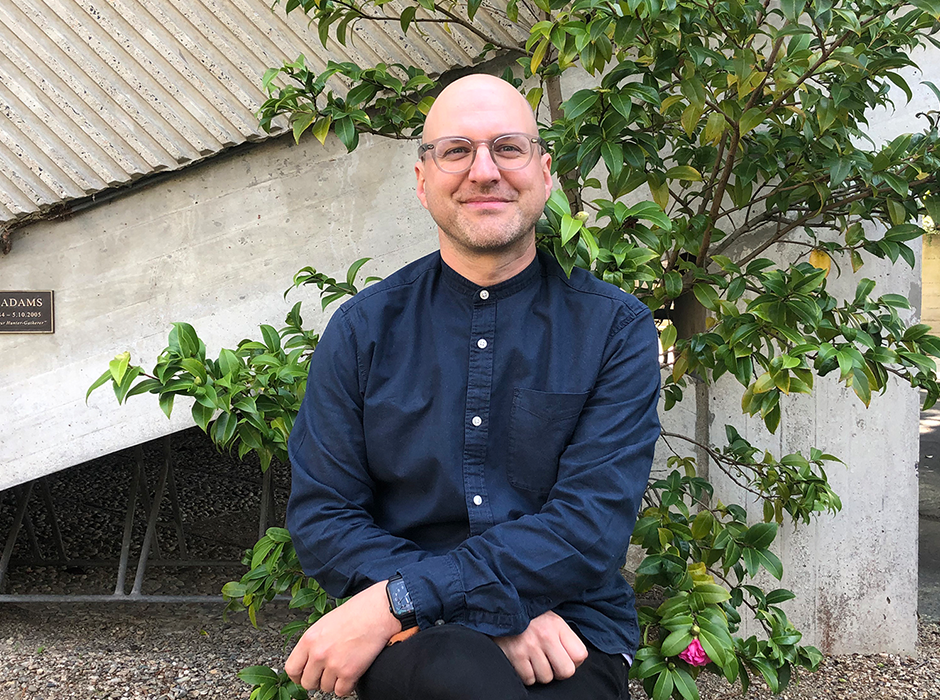
Professor Tobias Langlotz, based in the School of Computing, is leading the multidisciplinary project that’s using innovative technologies to support sustainable tourism.
Reimagining the tourism experience using innovative technology is the vision for a project as a recipient of MBIE Endeavour Fund Research Programme funding last year.
Professor Tobias Langlotz, based in the School of Computing, is leading the five-year $8.2 million multidisciplinary project He karapitipitinga mariko – Immersive regenerative tourism experiences in Aotearoa.
He says the research program aims to transform the tourism sector by developing a new technology-supported model that will help grow and support a sustainable-based tourism industry. This technology could enable virtual travel, augmented reality and enhanced education about tourist destinations.
“Research in this field has been fragmented in the past and was the driver for developing this project with an inter-disciplinary focus,” Professor Langlotz says. “I’m really excited to be bringing all the strands together including academic leaders from tourism, Indigenous knowledge, and technologists in partnership with the tourism industry and local communities.”
Referring to the collapse of the tourism sector during the pandemic and the response shown by many providers offering virtual tourism products, Professor Langlotz acknowledges these types of innovations have paved the way for looking to the future.
“Our intention is to recognise what has already been created in this space and to explore new opportunities using a systematic and collaborative approach.”
He provides examples of using technologies that enable virtual tourism without travel or to enhance local-based tourism by offering augmented mixed-reality visitor experiences.
“One application could include standing in a landscape and using augmented reality to travel back into the past or into the future. For example, it may be possible to see what the landscape used to look like, experience changes over time, or even what it may look like in the future under different scenarios.”
A particular focus for the project will be addressing sustainability aspects of tourism such as visitor numbers, environmental sensitivities, and cultural and ethical considerations.
“We are excited to be working with Māori partners and communities who rely on tourism,” Professor Langlotz says. “We want to explore how the use of technology can work with Mātauranga Māori and empower those communities while addressing associated risks and cultural considerations.”
The project is also working with the Department of Conservation to ensure wide geographical coverage of tourism offerings and applications across the motu.
Professor Langlotz says the timing of this project is poignant as the recent pandemic highlighted the vulnerability of the global population to unexpected events and challenges.
“The current return of global tourism comes with the risk of returning to previous unsustainable patterns as the industry makes up for lost earnings over the last few years.”
Assessing new sustainable tourism opportunities could also include providing future travellers with relevant information when making travel-related plans and decisions.
“Technology could be used to help people make decisions before travelling by educating about sustainability issues that aren’t necessarily known but should be considered,” Professor Langlotz says. “Based on an informed decision, some people may decide to travel virtually as an interactive experience, instead of travelling thousands of kilometres to visit the real thing.”
He gives an example of a family sharing an experience together, by ‘virtually’ travelling to a place or country they haven’t previously visited.
Professor Langlotz shares a personal dream of enabling his own grandparents, despite their declining health, to visit virtually some of the places he has been fortunate to travel to.
“As they are no longer able to travel long distances, when our vision becomes reality, they will be able to do so from their sofa.
“At the same time, we want to enable local tourism providers to explore new and more sustainable income opportunities and empower tourists to explore Aotearoa in new ways. This is the kind of vision the project is interested in.”
Kōrero by Guy Frederick, Sciences Communications Adviser